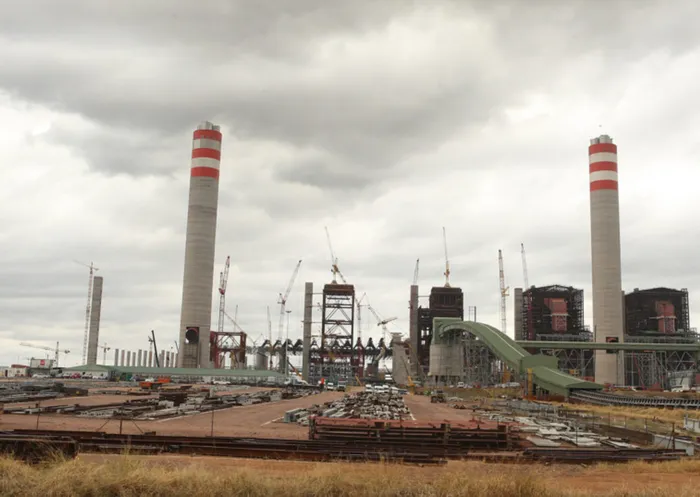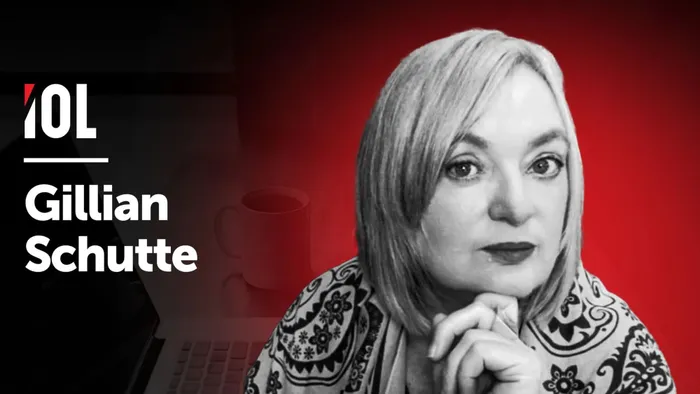Breaking the Boiler Fortress: Nomvula Mabuza’s Stand for Industrial Inclusion

Eskom's Medupi power station.
Image: Simphiwe Mbokazi / Independent Newspapers
Breaking Into a Closed Industry
When Nomvula Mabuza founded IDS Africa in 2018, she entered one of the most sealed-off sectors in South Africa’s economy — the maintenance of Eskom’s massive coal-fired boilers.
For decades, a small circle of entrenched companies, many tied to apartheid-era procurement, had controlled this work. At the centre is a single framework contract known to insiders as Boiler-Serve.
Worth an estimated R27 billion over five years when bundled with scaffolding and insulation, it determines who maintains the backbone of the coal fleet and who can participate in the country’s industrial base.
The Fortress’s Apartheid Foundations
The fortress was built long before democracy. In the final years of apartheid, Eskom signed “evergreen” agreements with a handful of white-owned boiler maintenance firms.
These contracts rolled over without competition, creating a closed loop where incumbents alone gained the hours, certifications, and experience needed to qualify for the next bid. By 1994, these companies were unassailable.
Post-apartheid procurement reforms left the old dynamics intact. Continuity was equated with security, and security was used to exclude outsiders. When tenders opened, the rules still favoured incumbents — especially the requirement for bidders to have prior experience on Eskom-class boilers of 60 MW or more, something almost impossible to achieve without already being inside the system.
In recent years, Eskom combined scaffolding and insulation with boiler work into a single framework, closing off one of the last ways for smaller South African firms to get in. Even scaffolding contracts now require Eskom-class boiler experience. The ladder into the sector has been removed.

Nomvula Mabuza.
Image: Supplied
IDS Africa’s Breakthrough at Medupi
IDS Africa was the first fully Black-owned, Black-woman-led mechanical engineering firm in this space. In February 2019, Mabuza secured a three-year, R90–R100 million contract for boiler tube maintenance at Medupi Power Station — one of Eskom’s most troubled plants.
Medupi’s boilers were plagued with defects and frequent breakdowns, yet her team delivered exceptional results: a 100% South African workforce, a weld repair rate below 1% — considered world-class — and a parallel commitment to training and certifying young boiler-makers and welders drawn from local communities.
Eskom insiders praised the work, recognising both the technical quality and the skills pipeline it generated. This was transformation in practice, not theory.
For the first time in decades, it appeared the fortress might be breached.
The Bigger Prize and the Media Storm
Beyond Medupi lay the national Boiler-Serve framework — a multi-billion-rand contract that could have secured long-term stability for IDS Africa and expanded its training and certification programmes into a national platform for developing welders, qualifying local workshops, and strengthening domestic industrial capacity. Partnered with General Electric, IDS passed the technical and commercial phases of the bid.
Then, in January 2020, the Mail & Guardian published Mabuza’s ‘distant relative’ scored big, alleging nepotism because she was distantly related to then-Eskom chair Jabu Mabuza, accusing her of “fronting,” and suggesting that IDS had used a partner’s track record to meet the tender’s requirements. A whistleblower letter to the Zondo Commission and Minister Pravin Gordhan echoed these claims, and a public dispute with a European partner over credentials added further pressure.
The timing was disastrous. GE withdrew from the partnership, collapsing IDS’s Boiler-Serve bid. By July 2020, the M&G issued a formal apology, conceding that the “dodgy tender” headline was false, clarifying that no such tender had been awarded or cancelled, and acknowledging that IDS Africa had never been found guilty of wrongdoing.
In March 2024, IDS Africa published a corrective write-up in the same newspaper, setting the record straight on their Medupi performance and detailing the reputational and financial damage caused by the false allegations. By then, the damage to IDS’s Boiler-Serve prospects was irreversible.
Continuity by Design
When Eskom announced the Boiler-Serve awards in October 2021, the winners were ACTOM and Steinmüller Africa.
ACTOM is a large South African industrial player with a Level 1 B-BBEE score achieved through institutional equity deals. Steinmüller Africa is majority foreign-owned, with a 25.1% local BEE shareholding that satisfies compliance requirements without shifting operational control.
The outcome preserved the incumbents’ dominance.
The Double Standard and the Hidden Ledger
The IDS Africa episode revealed the bias built into South Africa’s empowerment framework. A new Black-owned firm working with a foreign technical partner is treated with suspicion, yet a foreign-controlled incumbent holding a minority local partner is accepted as standard practice. Both rely on partnerships, but scrutiny falls disproportionately on the newcomer.
BEE scorecards can be met through ownership arrangements that leave decision-making power untouched, creating the appearance of transformation while the structure of control remains unchanged.
The public has never seen the full Boiler-Serve ledger — the pricing bands, evaluation scorecards, supplier-development undertakings, and the verified flow of work to local lead contractors. This secrecy is presented as a security measure but in reality protects market concentration and conceals the limited progress made in transformation.
As one insider put it: “If the public saw the full numbers, they would see how little transformation has actually happened. The day the ledger is published, the fortress falls.”
Why It Matters and What Should Change
Mabuza’s exclusion was a loss to the country’s industrial capacity. IDS Africa was already training and certifying welders, mentoring boiler-makers, and strengthening local workshops — proving that transformation could be delivered in practice. Boiler-Serve could have scaled these initiatives to hundreds more artisans and embedded them in the Eskom maintenance pipeline.
Instead, public funds continued to circulate within a closed network rooted in apartheid procurement practices. Her story reflects a broader pattern in which entry barriers, selective rule enforcement, and reputational attacks remove capable Black professionals from strategic sectors.
For Black women, these dynamics are even more punishing.
Dismantling the fortress will require deliberate measures: full public access to the contract and performance data; re-engineered procurement rules that allow qualified new entrants to build track records through phased work; corrections in the media given equal weight to the original allegations; institutional safeguards for Black-owned firms facing reputational attacks; and BEE scoring tied to actual operational control rather than passive ownership.
Without these changes, the fortress will stand — and the exclusion of proven performers will remain entrenched.

Gillian Schutte explores how Nomvula Mabuza broke into South Africa's closed industrial sector, challenging apartheid-era practices and paving the way for transformation in Eskom's boiler maintenance industry.
Image: IOL
* Gillian Schutte is a South African writer, filmmaker, poet, and uncompromising social justice activist. Founder of Media for Justice and co-owner of handHeld Films, she is recognised for hard-hitting documentaries and incisive opinion pieces that dismantle whiteness, neoliberal capitalism, and imperial power. Armed with an MA in Creative Writing and a background in African politics, Schutte fuses personal narrative with critical race theory and decolonial thought to interrogate entrenched systems of domination. Her body of work confronts oppression head-on, amplifies the voices of the marginalised, and advances a radical vision for social, economic, and political transformation.
** The views expressed do not necessarily reflect the views of IOL or Independent Media.
Related Topics: